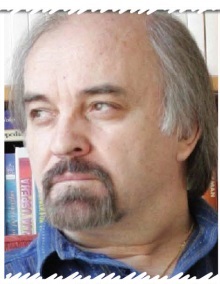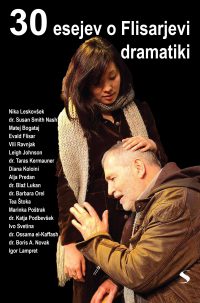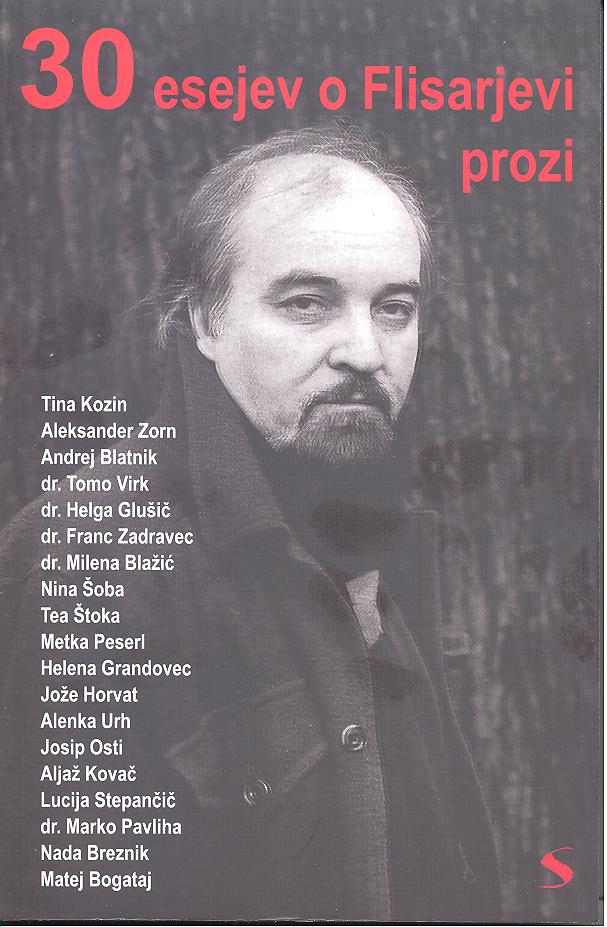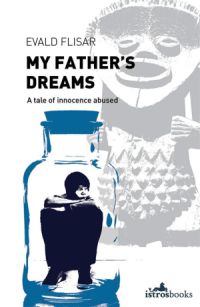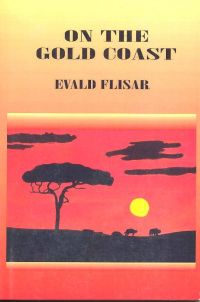Evald Flisar, a member of the Slovenian Academy of Sciences and Arts
According to experts who nominated him as a member of the Slovenian Academy of Sciences and Arts (SAZU), Evald Flisar is considered one of the most important Slovenian writers and playwrights of recent decades. He has achieved remarkable international success with translations of his novels and plays into 40 languages. Flisar has developed a unique, contemporary version of the buildungsroman. One of his most renowned novels, The Sorcerer's Apprentice (1986), belongs to this genre. It has been published in thirteen Slovenian editions and is recognized as the "most widely read Slovenian novel of the 20th century," with numerous translations available. His plays are staged by professional theaters on all continents. In terms of his refined synthesis of realistic dialogue, sensitivity, irony, and symbolism, Flisar is considered a successor to Chekhov, the theatre of the absurd, and English and American drama from the second half of the 20th century. Flisar is a master of storytelling and dialogue, and his language resonates with unusual naturalness in both his novels and plays. Through sharp conflicts of various perspectives, he constructs a synthesis of a comprehensive worldview.
Evald Flisar was born to a tailor father at the end of World War II (1945) in the picturesque village of Gerlinci, located on the Slovenian-Austrian border in the Prekmurje region. He completed the first four grades of primary school in his home village and the next four in the neighboring village of Cankova. He often described his childhood in Gerlinci as the happiest period of his life. This was followed by four years of high school in Murska Sobota, comparative literature studies at the Faculty of Arts in Ljubljana, and English language and literature studies at the West London College of Higher Education. He lived in Australia for three and a half years and worked, among other things, as an underground train driver in Sydney. After a one-year journey from Australia back to Europe, which inspired his first travelogue "A Thousand and One Journey," he settled in London, where he wrote short stories and radio and television plays for the BBC. He also edited (among other things) the "Encyclopedia of Science" for the major international publisher Marshall Cavendish. Since 1990 he lives most of the time in Ljubljana. He remained a globetrotter and has traveled through 98 countries to date.
His prose and travel works include "A Swarm of Dust," "Dying in the Mirror," "A Thousand and One Journey," "South of North," "Hunt the Hunter," "The Sorcerer's Apprentice," "Crazy Life," "Travels in Shadowlands," "A Journey Too Far," "Tales of Wandering," "My Father's Dreams," "Three Loves, One Death," "On My Way to Heaven I Called In Hell," "Tea with the Queen," "Maybe Never," "If I Only Had Time," "On the Gold Coast," "This Isn't Me," "The Girl Who Would Rather Be Elsewhere," "Enchanted Odysseus," "That's Where You'll Find Me," "Words Above the Clouds," "Girls I Remember," "Sin," "The Dream Collector," "Look Through the Window," "My Kingdom Is Dying," "Alice in Crazyland," "The Diaries of Adam and Eve," "Father's Letters to His Son," and "The Soul Merchant." Five of his novels have been finalists for the Kresnik Award, and eleven have been nominated. One was nominated for the Blue Bird Award. "Alice in Crazyland" was nominated for the Večernica Award.
His staged plays include "The Chestnut Crown," "The Nymph Dies," "Tomorrow," "What About Leonardo?," "Tristan and Isolde: A Play About Love and Death," "Worn Out Heart," "Sunspots," "Final Innocence," "The Eleventh Planet," "Nora Nora," "Aquarium," "Antigone Now," "Shakuntala," "Alice in Crazyland," "Take Me in Your Hands," "Comedy About the End of the World," and numerous radio and television plays in Slovenian and English. He has received the Grum Award for three of his plays, and eight have been nominated. In Slovenia, his plays have been staged by the National Theatre in Maribor, the Ljubljana City Theatre, the Prešeren Theatre Kranj, the Across the Street Theatre, and the Slovenian Chamber Theatre.
In addition to the Grum Awards, he has received the Prešeren Fund Award for three works, for "Travels in Shadowlands" and for the plays "What About Leonardo?" and "Tomorrow". He has also received the Župančič Award for Lifetime Achievement.
Even greater critical acclaim than in Slovenia, Flisar's works have achieved abroad. The Irish Times has included his novel "On the Gold Coast", nominatd for the Dublin International Literary Award, among the top 13 novels about Africa written by Europeans (in the company of names like Joseph Conrad, Graham Greene, Isak Dinesen, Bruce Chatwin, and others). Half-page and full-page positive reviews of the performances of "What About Leonardo?" and "Antigone Now" in Jakarta have been published in more than 20 newspapers. Etc.
He has participated in over fifty literary festivals, reading events, book signings, and performances of his plays on all continents, including the following countries and cities: British Library, London; European House, London; Congress Library, Washington; Golda Meir Library, Milwaukee; Jaipur Lit Fest, India; Tata Literature Festival, Mumbai, India; Kerala Literary Festival, India; International Book Fair in New Delhi; International Book Fair in Kolkata; Eslite Bookshop Taipei, Taiwan; Munich, Berlin, Brno, Warsaw, Wroclaw, Kosice, Reykjavik, Bucharest, Vienna, Rome, Cairo; tours in Brazil, Mexico, USA, and Australia; Scandinavian tour (Norway, Sweden, Finland, Denmark); Lahti Literary Festival, Finland; Teater Koma, Jakarta, Indonesia; Teater Amarta, Yogyakarta, Indonesia; Cultural Centre, Kathmandu, Nepal; presentation of his translations at the Alexandria Library, etc., etc.
Flisar's works have been translated into 40 languages, including English, German, Russian, Polish, Czech, Slovak, Romanian, Bulgarian, Greek, Turkish, Italian, Spanish, French, Belarusian, Azerbaijani, Albanian, Macedonian, Serbian, Croatian, Bosnian, Hungarian, Arabic, Chinese, Japanese, Vietnamese, Malay, Indonesian, Portuguese, Hindi, Bengali, Nepali, Tamil, Malayalam, Odia, Konkani, Icelandic, Amharic, Finnish, Dutch, Latvian, and Basque. At the time of his induction into SAZU, he had 250 translations, making him the most translated Slovenian writer and playwright.
Flisar's international performances of his plays deserve a special mention. The Grazer Theater im Keller has staged 13 of his plays in German so far. They received a subsidy from the Austrian Ministry of Culture for the performance of all 15 of his plays as part of the "Flisar-Komplet" project. Three of his plays were performed in London, one in Washington, one in Reykjavik, one in Vitebsk, Belarus, one in Moscow, one in the Czech Republic, two in Cairo, two in Serbia, one in Bosnia, two in Jakarta, one in Yogyakarta, one in Taiwan, one in Mumbai, one in New Delhi, five in Kolkata and four In Tokyo. Evald Flisar is currently the only Slovenian playwright whose plays have been staged by professional theaters in India, Indonesia, Egypt, Taiwan, Iceland, and Japan.
Translated plays have also been published as books, such as "Collected Plays, Vol. 1" and "Collected Plays, Vol. 2" in English (all 15 plays) by Texture Press, New York, and "Gesammelte Stücke, Band 1" and "Gesammelte Stücke, Band 2" in German (all 15 plays) by Hermagoras in Austria. Three plays have been translated into Italian, Spanish, Arabic, Bengali, and one into Czech, Indonesian, and Chinese. "Comedy About the End of the World" has been published in New York under the title "Comedy About the End of the World in twelve languages".
Among the books discussing Flisar's work, the most important are "30 essays on Flisar's prose", "30 essays on Flisar's plays", and two volumes of the monograph "The Life and Work of Evald Flisar" with 1,200 pages.
